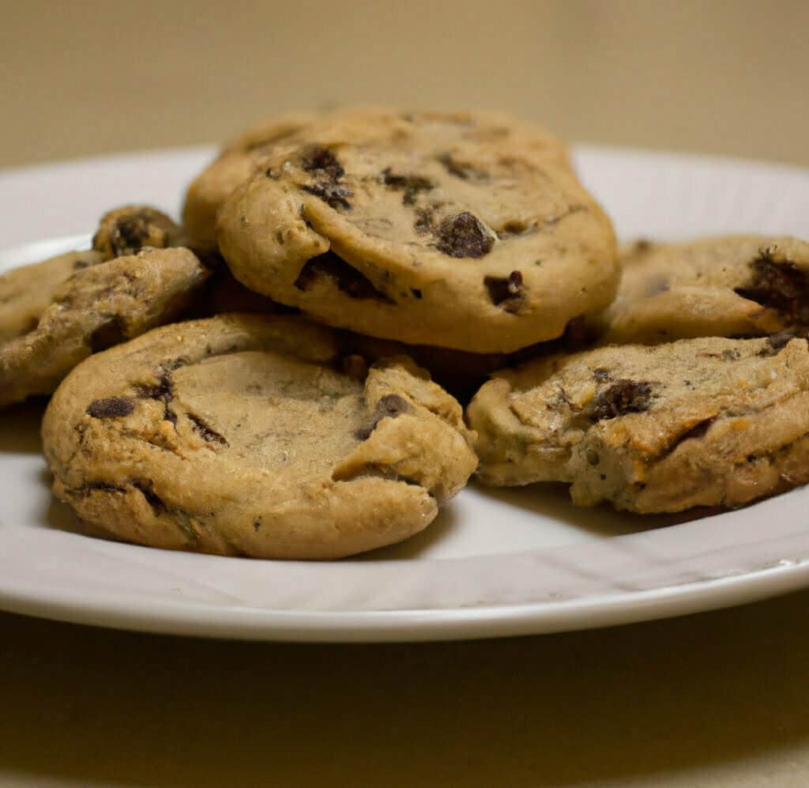Hello brave parents and caregivers!
Oh, the Sugar
I have been enjoying the cozy downshift of the holiday season and hope that you are at a place where you’re able to breathe and enjoy some quality time with friends and family. The holidays have not disappointed this year with the merry onslaught of togetherness, presents, and, making their unceremonious Farrow holiday debut, the frozen pipes. And let’s not forget the sugar. Oh, the sugar.
Watching my daughter enjoy the pleasure of food one chocolate-covered Oreo after another simultaneously brought a smile to my face and reminded me of how difficult it can be to approach the topic of food with kids. I’ve intentionally helped her to build a healthy relationship with food, but it’s not always easy. The epidemic of childhood obesity runs parallel with my controlling nature which intersects with my depth of experience treating children and adolescents with eating disorders.
A Little About Eating Disorders
Whenever I speak on the topic of eating disorders, I start with the important point that they are strongly genetic complex brain diseases, they are deadly, and they are NOT diseases of choice. Anorexia nervosa in particular is the most deadly of psychiatric diseases. (I highly doubt a person wakes up one morning and makes the personal choice to have a deadly disease.) And, by the way, gone are the days of blaming mothers for eating disorders (don’t get me started …). In fact, a current evidence-based approach for eating disorders, the Maudsley method, relies on the intervention of parents to treat their child’s eating disorder.
Food Is So Much More
Though we may not be the cause eating disorders, as parents, we have a responsibility to foster healthy attitudes and behavior about food. The concept of food carries as much emotional salience as it provides physical nourishment. Food is an expression of love and caring; it is the centerpiece of family gatherings and it abounds in times of celebration, sickness, and loss. How much we eat, why we eat, and how we feel about food is complex. To help our children regard food as a source of pleasure and nourishment rather than as something to worry about, control, or to use to manage emotions is an essential part of healthy living.
How to Talk to Kids About Food
So, I’d like to offer suggestions for how to talk to your kids about food. I write this with the knowledge that some children may be more vulnerable to the development of eating disorders based on their temperament (e.g., highly anxious, perfectionistic, introverted) and/or their family history of the disease. You know your family history and child’s health, medical needs, and temperament best. Please take from this what makes sense for your family and feel free to ignore what doesn’t.
- Encourage your child to listen to her body. Eat when she’s hungry and stop when she’s full. No need to finish her plate. Help build your child’s confidence in trusting her hunger cues.
- Allow messiness when it comes to food. This is HARD for me. Messiness stresses me out. But when it comes to a meal, a messy child is usually a happy child who has enjoyed his food. Tolerating the mess communicates that food is fun and not something to be controlled or avoided.
- Avoid talking about your child’s body, complimentary or not. Making your child’s weight, body shape, clothing size, recent growth spurt, etc. a topic of conversation places value on her appearance rather than her internal attributes.
- Talk about your own body positively. Don’t discuss your own weight, body image issues, or dieting strategies in front of your child. If you’re like me and can’t zip your jeans because of a c-section pooch, by all means, talk about it with your friends when your kids are out of ear shot. And try high-waisted jeans, you won’t turn back.
- Avoid using food as a reward. This is a tough one. The idea of rewarding good behavior with sweets is pervasive and people have different opinions about it. Mine is that it sends the message that a child must act in a certain way to deserve food or sweets. This adds a moral value to food that I’m just not comfortable with. It pains me to think how this may translate to a child who feels he does not deserve a piece of cake because he missed the winning goal or to an adolescent prone to bingeing who eats a bag of chips to reward himself for winning the game. We are not worthy or unworthy of food. It is a basic necessity.
- Achieve balance in meals and snacks. Try for dessert a couple times per week as a regular part of that balance. Consistency is also helpful. Consistent balanced meals and snacks maintain a child’s energy throughout the day and avoid hunger episodes that can trigger overeating, then meal-skipping, then hunger, then…. you catch my drift.
- Avoid labeling food. I was admittedly frustrated when my daughter came home from school with a handout asking her to categorize foods as healthy or unhealthy. We had a discussion about how there is not a good or bad food. Your body needs a balance of all food to function well. For example, fat and sugar are not “bad”; your brain is made of fat and it needs sugar to think.
- Realize that when it comes to nurturing healthy attitudes about food, language matters. I learned this the hard way during years of working with inpatients with eating disorders. A well-intentioned remark that a person in treatment looks healthier could re-trigger extreme dieting when the eating disorder brain misperceives “healthy” as overweight. During the recovery phase, I learned to respond with, “the sparkle is returning to your eyes” or “you look more alive” when a patient inevitably asked me how he looks. This is an extreme example, but it taught me to be mindful of the language I use around food and eating. In our family, we do not use the “f” word (yep, I mean “fat”). Exercise is regarded as movement designed to make our bodies strong. When it comes to clothes, my daughter is encouraged to choose her own outfits and to base her choices on how well they express her creativity or how easy they are to play in. Also, reinforcing a child’s positive behavior, such as when she demonstrates kindness through sharing, highlights internal attributes that shift emphasis away from appearance.
Mindful Communication
The truth—I am great at following some of my own suggestions and not so much at others. When it comes down to it, the best we can do is make mindful decisions about how we communicate about food with our kids and learn from our mistakes. For anyone interested in reading more about this topic, Aimee Liu’s Gaining: The Truth About Life After Eating Disorders unflinchingly explores the post-eating disorder journey and offers sharp insight for parents about how to foster healthy attitudes and behavior about food. Sometimes intense and always brilliant, this book not only informed my parenting approach to food and eating, it helped me become a better doctor.
With that brave parents and caregivers, I wish you the happiest New Year! Here’s to staying mindful in 2023!



